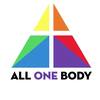This is the twelfth installment in a series of reflections on LGBTQ+ matters.
The church is polarized over how to respond to realities like gender fluidity, same sex unions, and notable differences in the interpretation of important passages of scripture among careful biblical scholars.
Fueling the polarity, serious numbers of people are anything but tepid in calling out what they believe to be sin. These brothers and sisters of ours believe it is their job to protect themselves and their churches from sin. As defenders of the faith, they vehemently call out sin and want to discipline sinners, maybe even shut them out of opportunities to serve their congregations and their Lord because of it.
Is that who we truly want to be? Is that how we want to be known by a disbelieving world? Is that the core of the Christian faith? Is that a holistic way of viewing the entire testimony of scripture?
I think a primary calling of Christians is to draw near to others and to share their joys and burdens. In order to do that, we must approach each other with an awareness of mutuality and with willingness to be vulnerable. We need to be ready to say to each other, “I am human just like you. I struggle with ethical decisions and agonize over my mistakes. I’m not afraid of our differences, including our different pain and struggles.” When we see others as human, like ourselves, it makes room for compassionate, kinder responses.
The person whom we think is misguided or worse gives us an opportunity to look at ourselves. We cannot respond with kindness to what we perceive to be brokenness in another if we are not in touch with our own brokenness and if we are not gentle with ourselves. If we haven’t seen or reacted to our own need for change, how can we allow ourselves to be impatient with another’s lack of change? How can we be as loving as God is if we ourselves have not fully absorbed God’s generosity with us?
Recognition that the other is just like myself is necessary for unity in the church. The way for us to live together is to say, “I am yours, and you are mine. I am human and fragile just like you. Let’s hang on to each other.”
Tom Hoeksema is a member of the Board of All One Body. He is a retired Professor of Education at Calvin University, where among other things he advocated for inclusiveness for children with varied abilities in P-12 schools and worked to break down barriers to full participation of marginalized people in the church.
